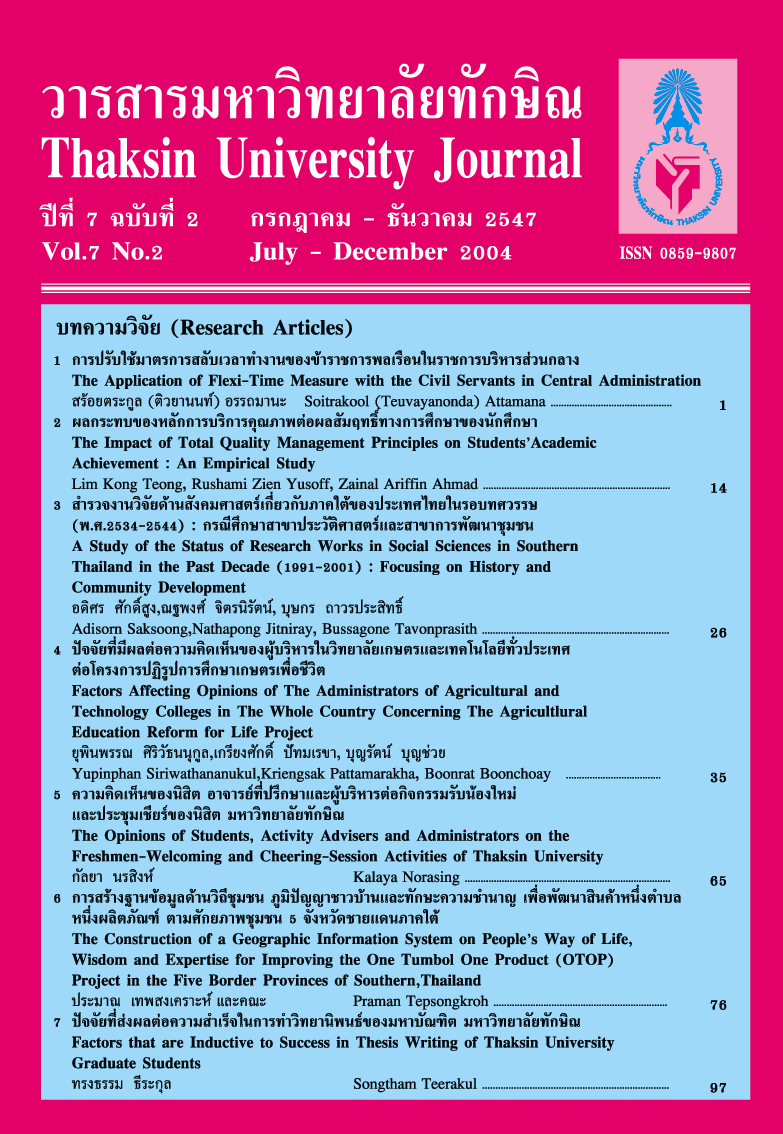ผลกระทบของหลักการบริการคุณภาพต่อผลสัมฤทธิ์ทางการศึกษาของนักศึกษา
Main Article Content
Abstract
fact, continuous improvement, and focus on processcs and prevention. Students' academic achievement variables include dcgree score, success rale of leavers, and perceived students' academic achievement.
The study was based on a survey design and the time horizon was cross sectional with mini-rnal reseacher's interfernce. The survey was carried out in 100 educational departments selected randomly from 10 public universities in Malaysia. Thc linal number of participants for this study was B5 educational departments. The sample size comprised about ?0 percent pf the total population. The study hypotheses were tested using correlational and multivariate statistical analyses. The results supported all the hypotheses posited for the study, suggesting that education organizations can benetlt tiom TQM principles. Pearson-r correlations indicated that all of the TQM principles have significant correlations with students' academic achievement variables. Rcgression analyscs
indicated significantly positive relationships. Furdrer, results of statistical analysis also indicated that the principles should be implemented holistically rather than piecemeal. In conclusion, this study provided
insight and further understanding of the effect of TQM principles on organizational performance, and
hence allows practitioners to gain in deplh knowledge about the impact of TQM principles.


